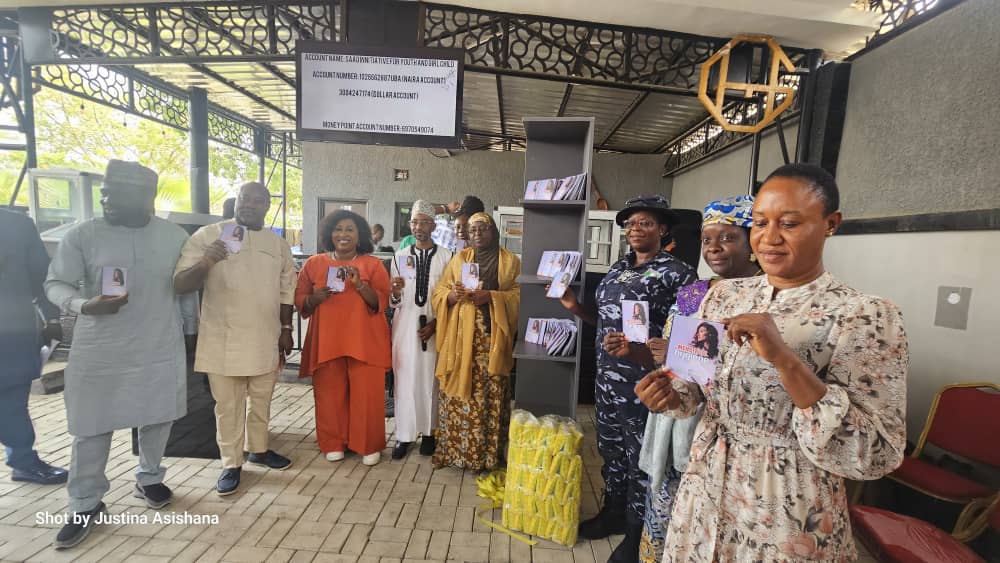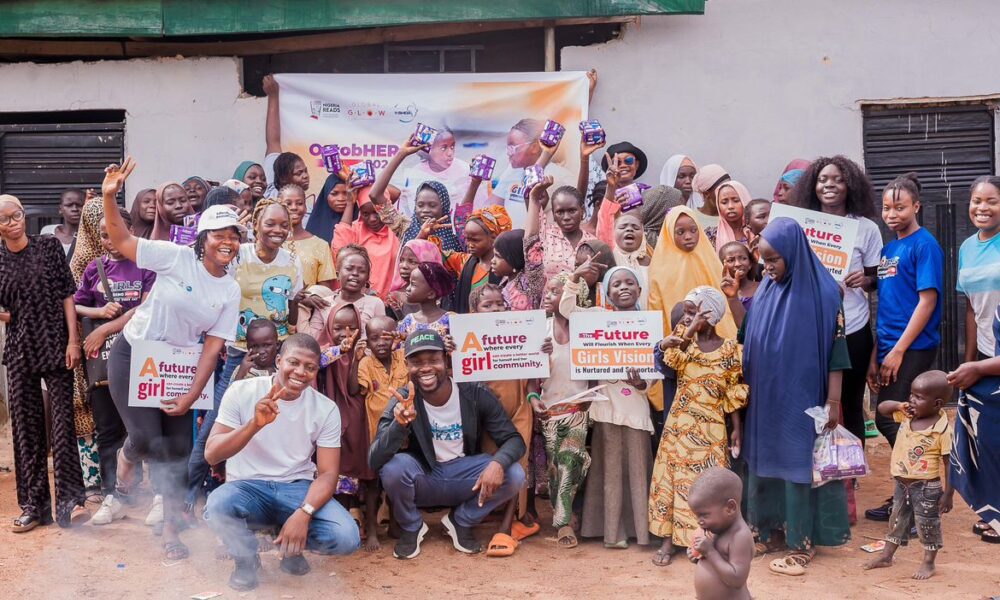For many young girls, the arrival of their first period is met with confusion, fear, and even shame.
Dr. Valda Martins, a lecturer at the Federal University of Technology (FUT) Minna, knows this feeling all too well.
She vividly recalls her own experience, how a lack of information left her terrified and unprepared. Now, she is determined to change that narrative.
At the launch of her new book, Menstrual Hygiene Among Women, Dr. Martins made a passionate call for increased awareness and sensitization on menstrual hygiene.
She emphasized that poor menstrual hygiene is not just a personal issue but a public health crisis, contributing to rising cases of cervical cancer, infections, and school absenteeism among young girls.
“The day my first period arrived, I trembled in fear, convinced it was an issue of blood from the Bible story. That trauma became my inspiration. No girl should feel such shame or confusion again,” she shared.
Beyond awareness, Dr. Martins pointed out poverty as a major barrier to proper menstrual hygiene.
With Nigeria’s economic challenges, many girls and women struggle to afford sanitary pads, forcing them to resort to unsafe alternatives that can lead to infections and long-term health complications.
Her book launch was not just about pages of research, it was a mission to dismantle myths, empower girls, and push for policy changes.
Through her NGO, Succeeding Against All Odds (SAAO), she has interacted with over 6,000 girls in Niger State and the FCT, Bwari Area Council, discovering that 90% of them lack basic knowledge of menstrual hygiene.

“This revelation birthed a mission—first, a solo effort, and later with my incredible team at SAAO. For seven months now, we’ve also expanded to mental health because a girl’s well-being is holistic.”
Dr. Martins stressed that poor menstrual hygiene directly affects a girl’s mental health and academic performance. Girls missing school due to menstruation lose valuable learning time, deepening gender inequality in education.
The former Governor of Niger State, Dr. Mu’azu Babangida Aliyu, represented by his Chief of Staff, Hamisu Jankaro, praised the book as a must-read for every teacher and girl in the state.
The Permanent Secretary, Ministry of Humanitarian Affairs, Barrister Merio Mann, also lauded the initiative, calling it a step beyond mere advocacy.
“This is more than just distributing sanitary pads. This book ensures that the conversation about menstrual hygiene reaches homes, schools, and policymakers. It’s a guide for parents, teachers, and even shy guardians who struggle to discuss menstruation with their daughters.”
Dr. Martins aligned her advocacy with the United Nations Sustainable Development Goals (SDGs), particularly: SDG 3: Good Health and Well-being, SDG 4: Quality Education, SDG 5: Gender Equality, SDG 6: Clean Water and Sanitation and SDG 10: Reduced Inequality
She believes that making menstrual hygiene education a right, not a privilege, will improve school enrollment, reduce stigma, and foster gender equity.
“As the UN states: ‘Menstrual health is not a luxury. It is a human right.’ Every child deserves access to this knowledge, and this book is a step toward that empowerment.”
Dr. Martins urged government institutions, parents, and NGOs to step up efforts in providing menstrual education and hygiene products for young girls. She stressed that access to clean water and sanitation in schools is essential for proper menstrual hygiene management.
Her book, more than a publication, is a movement—one aimed at replacing shame with knowledge, fear with confidence, and silence with empowerment.
With a growing call for action and an inspiring advocate like Dr. Martins leading the charge, the future looks brighter for young girls navigating their journey to womanhood, informed, confident, and unafraid.




